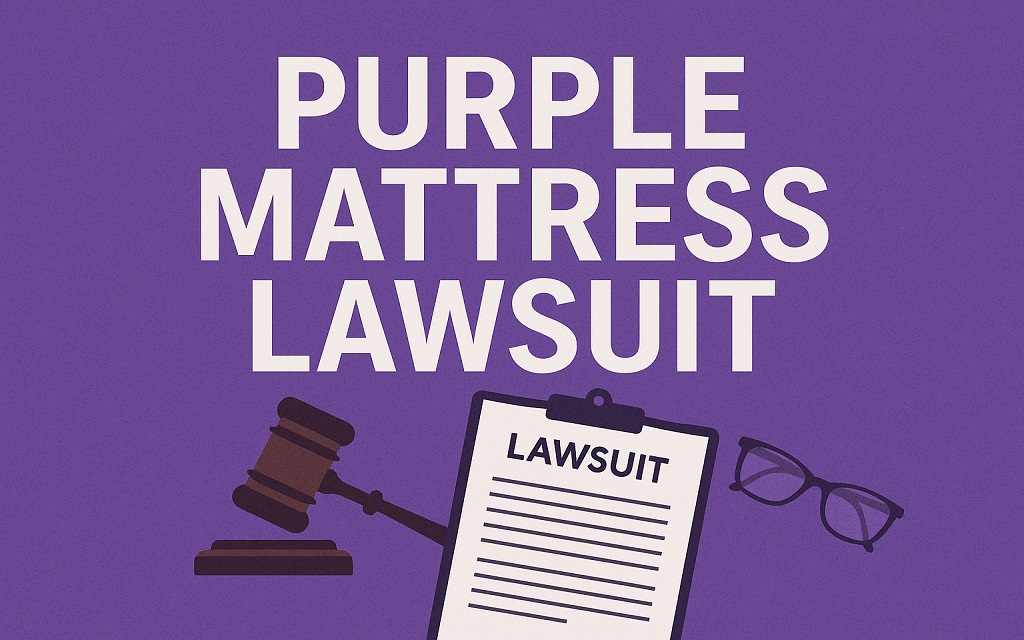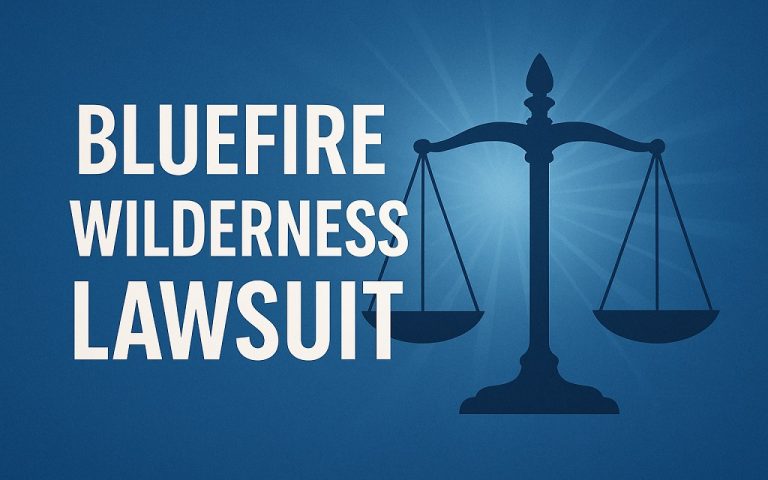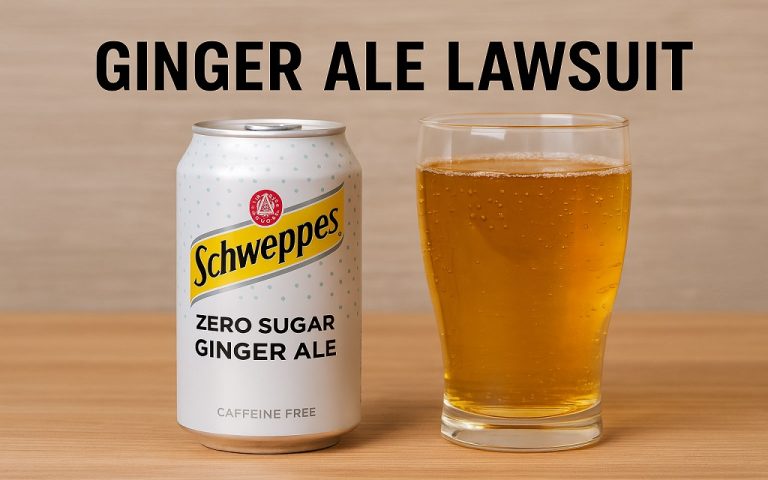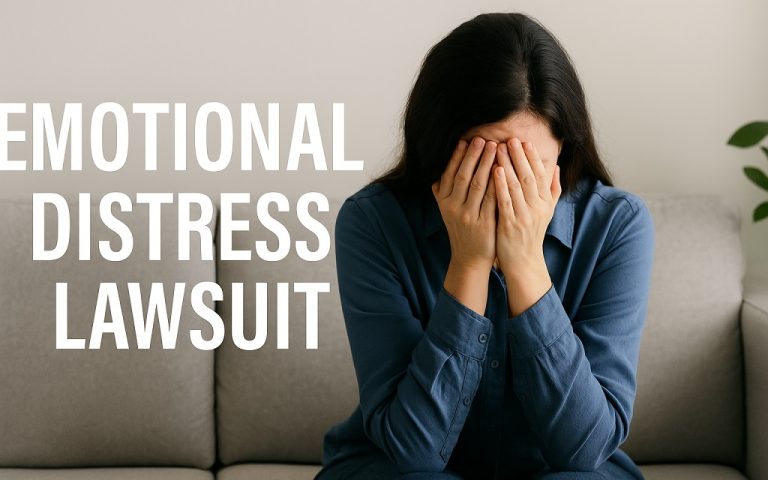Purple Innovation Inc. faces legal scrutiny that centers on how the mattress company marketed prices and protected its proprietary technology. Courts and consumer advocates have examined separate disputes that involve advertising practices and intellectual property claims. Verified filings and published reports frame the controversy. Public records show no criminal findings. Civil litigation continues to shape how the company defends its brand and sales methods.
Purple operates as a publicly traded company known for its gel grid mattress design. Online sales drive much of its revenue. Discount advertising and patented materials play a central role in its business model. Legal challenges have questioned both areas. Consumer plaintiffs and corporate rivals have taken action through different courts. Each case follows a distinct path. Each carries separate legal standards.
Market attention grew after a consumer class action accused Purple of misleading online pricing. Legal attention also followed a patent dispute with a competing mattress maker. Both matters rely on verified court filings and reputable reporting. Both matters remain relevant to consumers and investors.
How the Lawsuit Started
A consumer class action alleged that Purple advertised deceptive discounts on its mattress products. The complaint claimed shoppers saw markdowns that did not reflect real price reductions. Court filings cited online promotions that showed higher reference prices followed by discounted rates. Plaintiffs argued that the reference prices rarely reflected actual prior sales prices.
ClassAction.org reported that the lawsuit accused Purple of violating consumer protection laws through pricing practices. The filing stated that advertised savings created a false sense of urgency. Plaintiffs alleged shoppers believed they received limited-time deals. The complaint asserted that the mattresses were sold at or near the advertised discount price for long periods.
The lawsuit named Purple Innovation Inc. as the defendant. The filing sought relief under state consumer fraud statutes. The court filing did not allege physical harm. Financial deception formed the core claim. No regulator announced penalties at the time of filing.
Background of the Case
Purple built its brand around direct-to-consumer mattress sales. Online promotions played a large role in customer acquisition. The class action focused on how those promotions appeared on the company website. Plaintiffs cited repeated discount banners. Plaintiffs argued the pricing structure violated laws that prohibit fictitious reference pricing.
Consumer pricing lawsuits often examine how long an item sells at a given price. Courts assess whether a higher price functioned as a genuine former price. The Purple case followed that pattern. Plaintiffs relied on screenshots and historical pricing claims. The complaint alleged systematic conduct rather than isolated errors.
Public reporting did not confirm a final judgment or settlement related to the discount claims. Court dockets showed early procedural activity. Media coverage emphasized allegations rather than proven findings. No admission of wrongdoing appeared in published records.
Key Allegations
The class action alleged Purple misrepresented savings through false markdowns. Plaintiffs claimed advertised discounts lacked a legitimate reference price. The filing stated the practice influenced consumer purchasing decisions. The lawsuit framed the conduct as misleading rather than accidental.
Purple did not publicly concede the allegations in published coverage. Company responses appeared limited in public reporting. No regulator announced enforcement action tied to the claims. The lawsuit remained a civil consumer dispute. Courts had not ruled on the merits at the time of reporting.
Timeline of the Purple Mattress Lawsuit Case
Early Complaints and Consumer Signals
Consumer concern surfaced through online shopping experiences. Plaintiffs described repeated exposure to discount banners. The lawsuit alleged long-running promotional pricing. Consumer protection statutes formed the legal basis. ClassAction.org reported the claims after the complaint became public. The source relied on court filings and plaintiff allegations rather than findings.
Company Response
Public records showed no detailed company statement addressing the discount allegations in early reporting. Purple did not admit liability in published sources. No settlement announcement appeared in reputable outlets. The absence of a public defense statement remained notable in coverage.
Court Filings and Legal Steps
The class action complaint named Purple Innovation Inc. as the defendant. The filing relied on state consumer protection laws. The court accepted the complaint for initial review. Media coverage did not list a final ruling or dismissal. Bloomberg Law did not report procedural outcomes for the consumer case. Verified reporting confirmed the existence without final resolution.
Judge Notes or Judicial Signals
Published sources did not report judicial commentary or rulings on the merits. No judge issued a public opinion cited by major outlets. Court posture remained preliminary based on available reporting.
Government or Regulatory Actions
No FTC or state attorney general enforcement action appeared in verified reporting. The case remained a private civil lawsuit. Regulatory agencies did not announce parallel investigations in public records.
Settlement Timeline
Public sources did not confirm a settlement. Reputable outlets did not report monetary relief or consumer payouts. The timeline lacked verified resolution details.
Current Status
Verified reporting did not confirm an outcome for the consumer discount case. Court records referenced in the media remained active or unresolved at the last update. No dismissal or judgment appeared in the cited sources.
Related Purple Innovation Litigation
Separate litigation involved Purple Innovation suing Intellibed over mattress technology. Bloomberg Law reported that Purple accused Intellibed of patent infringement related to gel matrix designs. The lawsuit centered on intellectual property rather than consumer pricing.
Purple claimed that Intellibed had plagiarized patented technologies. Injunctive relief and damages were requested in the complaint. Tensions between competitors in the mattress sector were brought to light by the lawsuit. The conflict was presented by Bloomberg Law as a business-to-business patent battle. Customers were not directly involved in the issue.
Additional Case Details
The consumer class action and the patent lawsuit remain distinct. Courts treat advertising claims and patent infringement under separate legal frameworks. Verified reporting does not link the two cases procedurally. Both cases reflect legal risks faced by consumer product companies operating online. Public disclosures did not confirm regulatory penalties in either matter.
Final Summary
Two separate cases are involved in the Purple Mattress lawsuit. Purple Innovation Inc. was charged in a consumer class action of deceiving customers by using online discount pricing. A final decision or settlement was not documented in public documents. Purple sued Intellibed in a different action for mattress technology patent infringement. The cases were handled independently by the courts. Verified reporting did not confirm outcomes in either matter.
Disclaimer: All information in this article comes strictly from verified public sources such as competitor publications, court filings, and reputable news outlets. Nothing is based on assumptions or personal opinions. For corrections or more details, please contact our team through the Contact Page. We never publish misleading or unverified information.
Musarat Bano is a content writer for JudicialOcean.com who covers lawsuits, legal news, and general legal topics. Her work focuses on research-based, informational content developed from publicly available sources and is intended to support public awareness. She does not provide legal advice or professional legal services.




